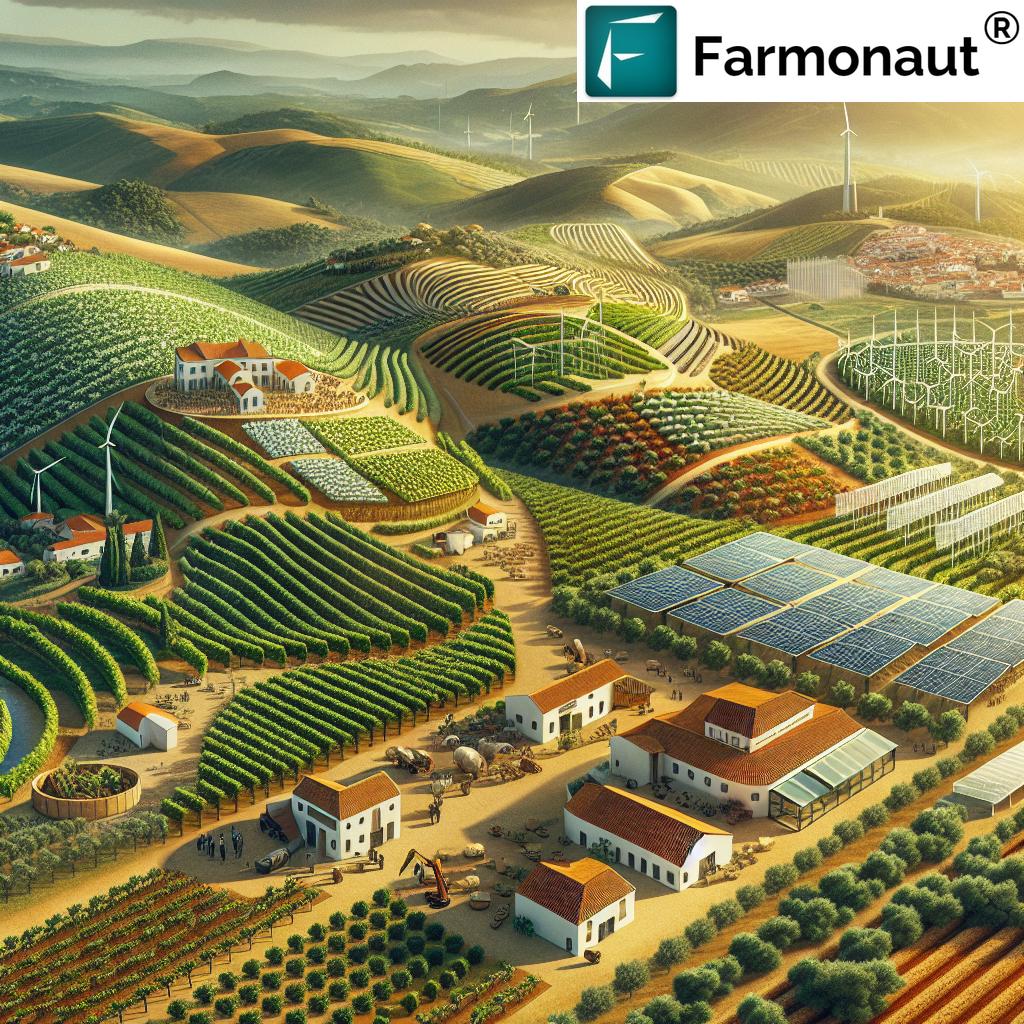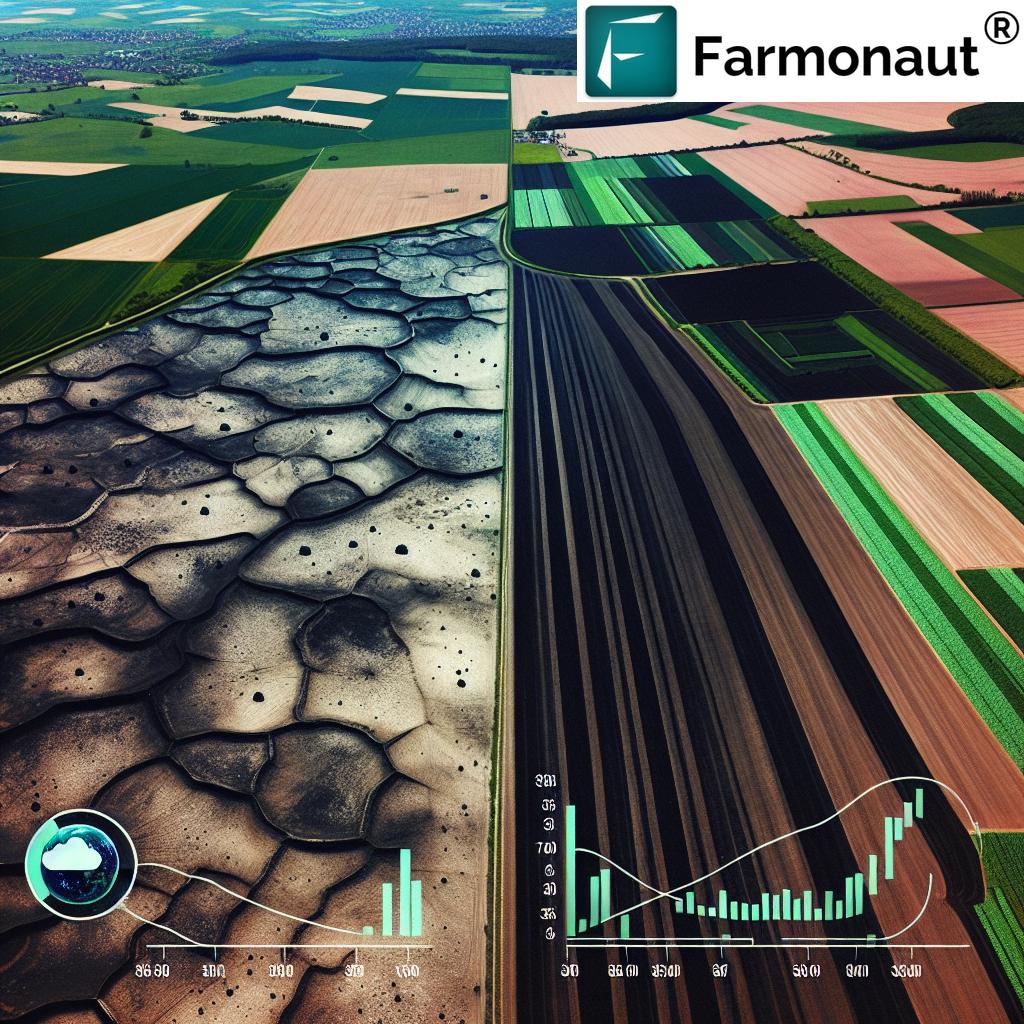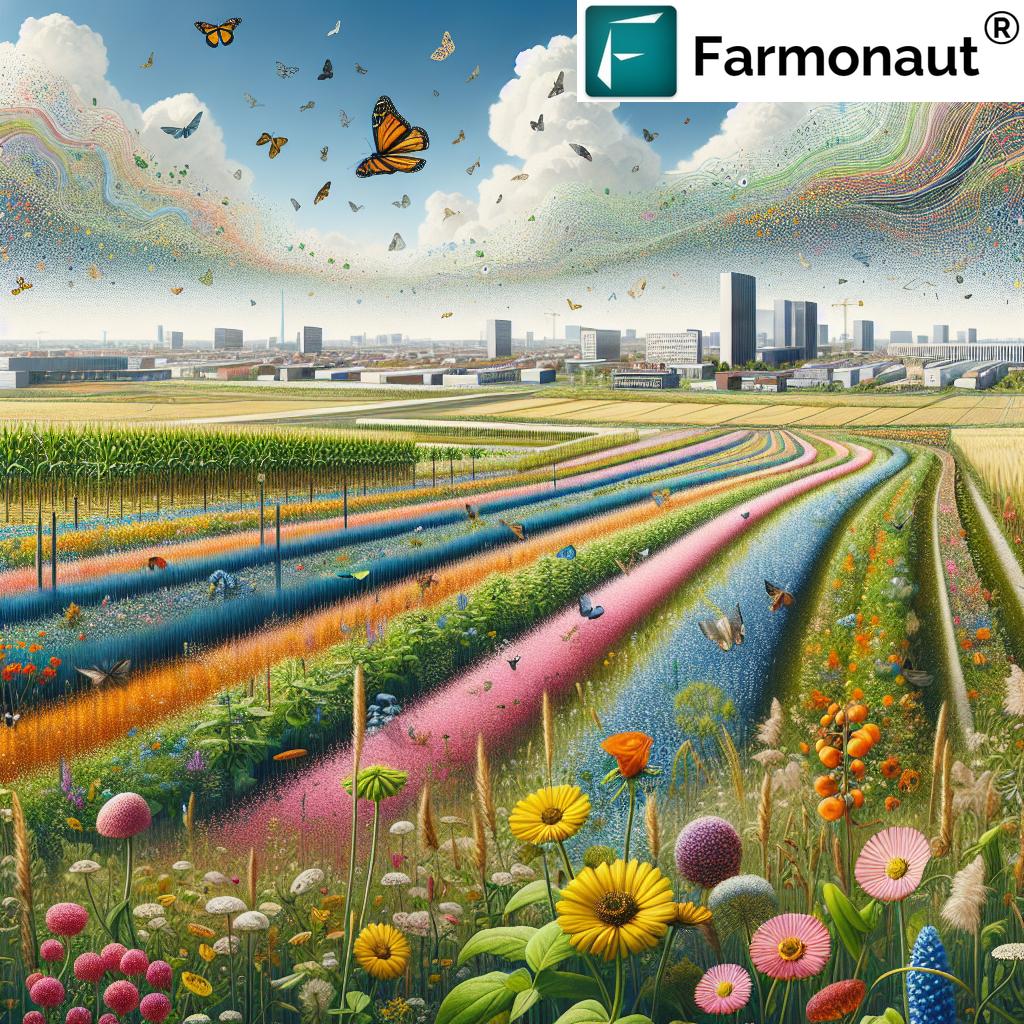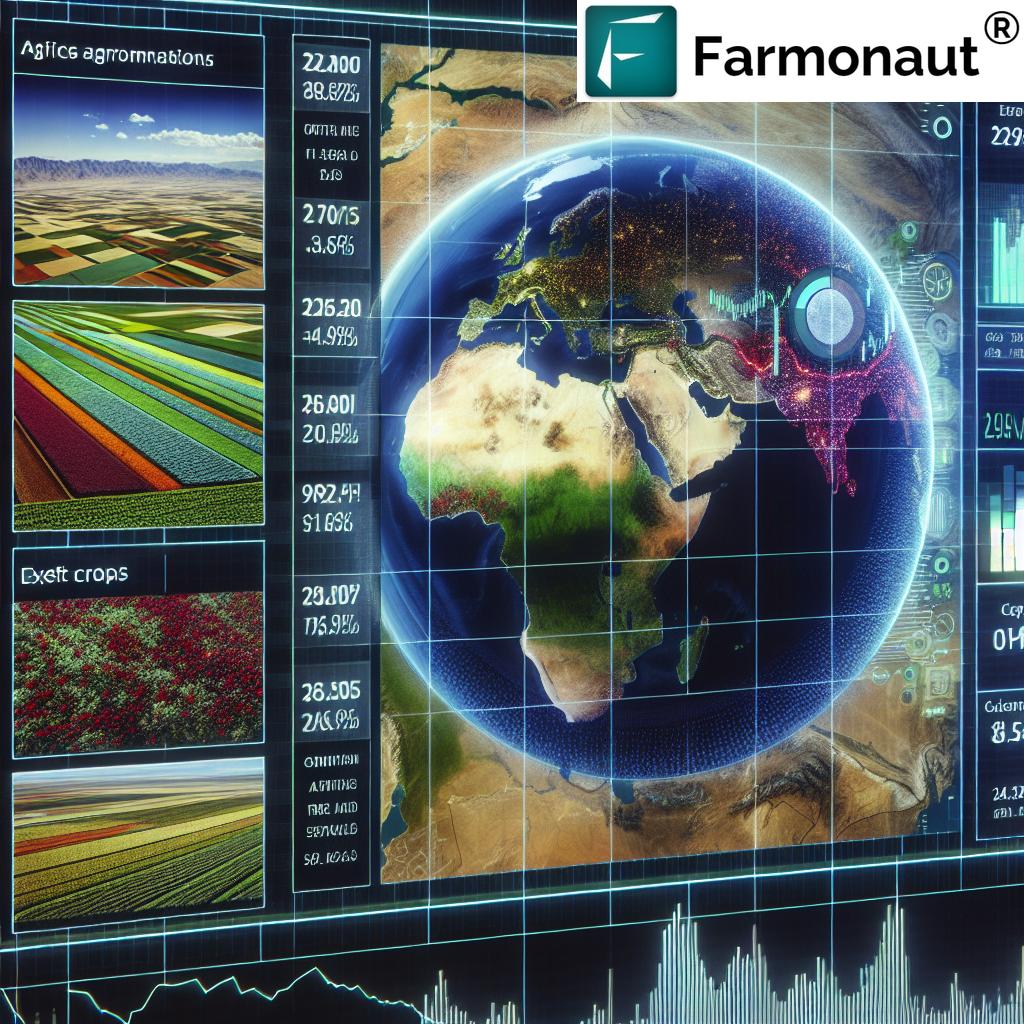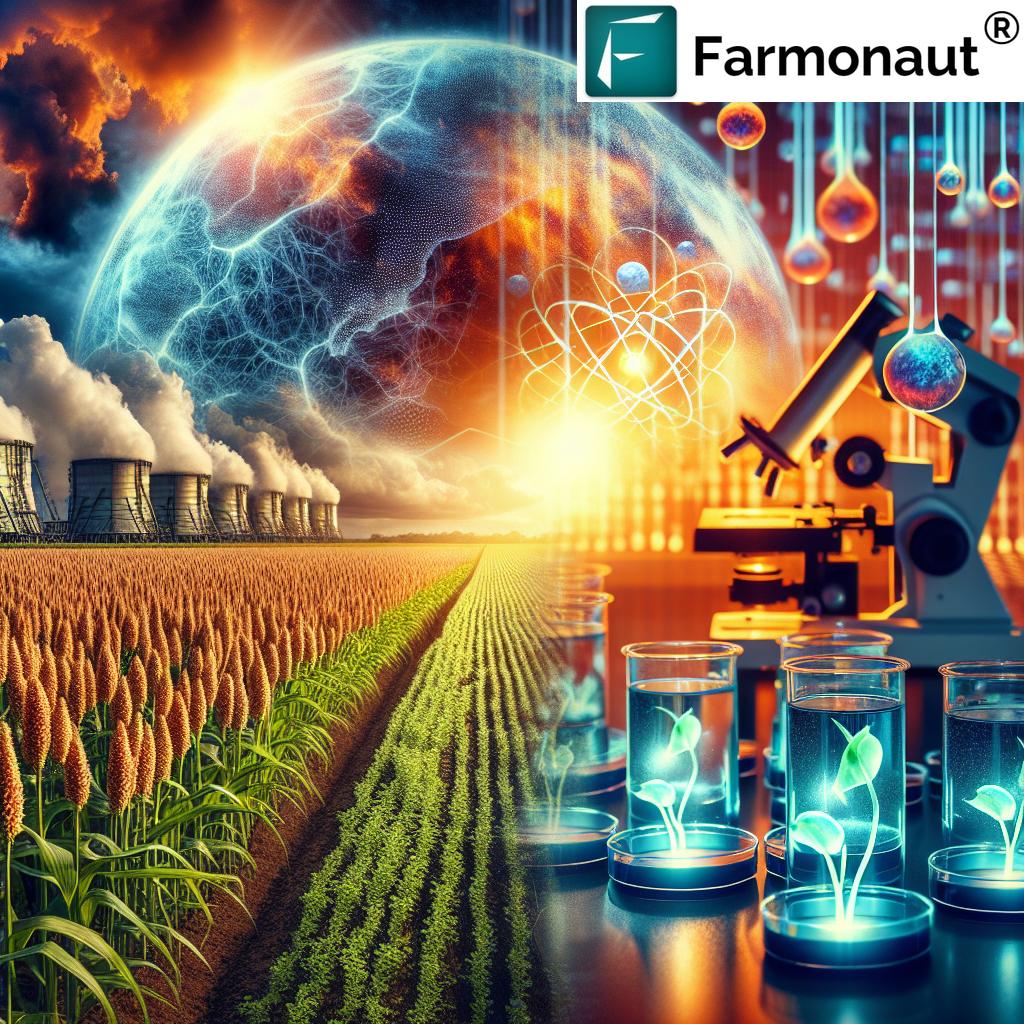Agriculture Work in Portugal: Top 7 Sustainable Trends 2025
Summary: Agriculture in Portugal – Trends & Prospects (2025)
Agriculture remains a cornerstone of Portugal’s economy and cultural heritage, anchoring livelihoods in rural communities and shaping the nation’s iconic landscape. As we enter 2025, agriculture work in Portugal continues to evolve—balancing traditional practices with modern innovations to meet the urgent environmental challenges, global market demands, and opportunities for sustainability.
This article explores the current state of the sector, highlighting key crops, sustainable practices, policy frameworks, technological advancements, and the foreseeable prospects for 2025 and beyond.
“Portugal aims to reduce synthetic pesticide use by 25% in agriculture by 2025 for a healthier environment.”
Overview: Agriculture Work in Portugal (2025)
The agricultural sector in Portugal is deeply tied to the country’s diverse geography and Mediterranean climate, which provide favorable conditions for a wide range of crops and products. The landscape is marked by small to medium-scale family farms, often embracing mixed farming and adapting to climate and market pressures.
- Major crops: olives, grapes, cork oak, fruits (such as oranges and apples), vegetables, cereals, almonds
- Iconic regions: Douro Valley vineyards (wine), Alentejo cork forests, Algarve citrus groves
- 2025 priorities: sustainability, climate adaptation, irrigation efficiency, organic farming, technologies integration, rural development
Key Crops and Production Regions in Portuguese Agriculture
Portugal’s diverse geography enables the country to produce a wide range of agricultural products, many of which are closely linked to the cultural identity and export success of the nation.
- Olives & Olive Oil: Central to the economy; Portugal is among the world’s top olive oil exporters.
- Grapes & Wine: Douro Valley vineyards dominate with celebrated wines, significantly contributing to revenue and export.
- Cork Oak: Portugal leads globally in cork production from sustainable oak forests, especially in the Alentejo.
- Fruits: Oranges (Algarve), Apples (Beira Alta), Almonds (Trás-os-Montes).
- Vegetables and Cereals: Wide range of vegetables and cereals support both local consumption and export.
Regional Specializations:
- Douro Valley: Renowned for vineyards and wine production.
- Alentejo: Expansive cork oak forests and wheat farms.
- Algarve: Citrus fruits and horticulture.
- Trás-os-Montes: Almonds and olive groves.
The Top 7 Sustainable Agriculture Trends for 2025
2025 brings a pronounced shift toward sustainability in agriculture work in Portugal, underpinned by innovative technologies, growing environmental awareness, and evolving policy frameworks. Here, we detail the seven leading sustainable trends that define the sector’s most progressive practices.
| Sustainable Trend | Description | Key Crop(s) Involved | Estimated Impact (2025) | Environmental Benefit |
|---|---|---|---|---|
| Precision Farming | Use of satellite data, analytics, and sensors to optimize inputs and maximize yields. | Olives, Cereals, Vineyards, Vegetables | Up to 25% less water and fertilizer use per hectare. Adoption: ~30% of farms in 2025 |
Reduces resource use and pollution Boosts crop efficiency |
| Organic Crop Rotation | Increasing organic and mixed cropping for soil health. | Vegetables, Fruits, Cereals, Almonds | Organic area up 15% from 2020 | Improves soil structure Reduces chemical input |
| Water-Efficient Irrigation | Drip systems, water recycling, and digital irrigation scheduling. | Olives, Fruits, Vineyards, Vegetables | 40% of farms using advanced systems | Conserves water, combats drought |
| Climate-Resilient Varietals | Languages crops suited to heat, drought, and irregular rainfall patterns. | Cereals, Grapes, Almonds | ~20% increase in resilient crop area | Stabilizes yields against climate variability |
| Digital Monitoring Systems | Satellite/aerial imagery and AI-driven analytics for real-time farm oversight. | All major crops | Estimated 30% yield optimization for users | Informs timely intervention, reduces loss |
| Soil Health Practices | Cover cropping, composting, reduced tillage, and organic amendments. | Olives, Almonds, Cereals | Soil organic matter up 12% (avg.) | Prevents erosion, boosts fertility Sequesters carbon |
| Renewable Energy Use | Deployment of solar, wind, or bioenergy on farms and cooperatives. | All (especially irrigation-dependent crops) | Projected 10% sector-wide adoption | Reduces emissions, lowers operational costs |
Highlighting 2025 Trends:
- Precision farming is now central to farm management. Satellite imaging and analytics—like those provided by Farmonaut’s platform—allow traceability, resource optimization, and smarter interventions.
- Water efficiency remains at the forefront—40% of Portuguese farms are already using advanced systems.
- Organic and regenerative approaches are growing, with soil health prioritized via carbon footprint monitoring and diversified rotations.
- Farm digitalization is helping small family farms optimize production, reduce losses, and meet EU CAP guidelines for sustainability.
“Over 40% of Portuguese farms are adopting water-saving irrigation systems as part of sustainable trends for 2025.”
Technologies & Modernization Driving Agriculture Work in Portugal (2025)
The technological revolution is reshaping agriculture work in Portugal. Facing climate fluctuations, competitive market demands, and resource challenges, farmers and agribusinesses are progressively adopting new tools and integrated systems.
Cutting-Edge Tools:
- Satellite Imagery & Data Analytics: Supports soil monitoring, vegetation health, and yield forecasting.
- Soil Sensors: Provide real-time data for fertilization and irrigation management.
- Automation & Drones: From pest control to automated harvesting, technologies now reduce labor dependency and improve efficiency.
- Blockchain-based Traceability: Ensures food origin transparency and compliance (Farmonaut Traceability Product).
- AI-Driven Advisory Systems: Decision support for disease, weather prediction, and resource allocation.
Sustainability has become a strategy, not just a consideration.
Use these apps to access Farmonaut’s cost-efficient, AI-enabled satellite technology for agriculture monitoring, sustainable resource management, carbon footprinting, traceability, and digital advisory in Portugal.
Water Management & Climate Challenges in Portuguese Agriculture
Water scarcity, prolonged droughts, and irregular rainfall patterns are emerging as critical threats in Portugal’s agricultural future. Resilient water management is now pivotal to the sector’s survival and success.
Key Water Strategies (2025):
- Drip and Precision Irrigation: Over 40% of farms employ drip systems and remote scheduling, helping save water by up to 30-50% compared to traditional methods.
- Water Recycling & Reservoirs: Investments in infrastructure enable the reuse of water and collection during rainfall spikes, vital for climate adaptation.
- Policy Incentives: EU and Portuguese government frameworks are providing grants and technical support for efficient irrigation and climate-smart agriculture.
Environmental Impact:
- Conserves scarce resources and protects soil from salinization.
- Enables stable production and revenue for communities, even in adverse conditions.
- Supports sustainability by reducing water waste and lowering greenhouse gas emissions from over-irrigation.
Future trends include scaling digital sensors and predictive tools to forecast water needs and extreme weather—solutions integral to carbon and environmental monitoring.
Environmental Policy, Regulatory Frameworks & CAP Directives in Portugal
Portugal’s agricultural policies in 2025 balance productivity with environmental stewardship and rural development. As an EU nation, Portugal operates within the Common Agricultural Policy (CAP)—whose most recent reforms encourage sustainability and resource conservation.
Key Policy Highlights:
- CAP reforms emphasize climate action, rewarding farmers for adopting sustainable practices and reducing emissions.
- Support for diversified crops, carbon sequestration, and landscape resilience through agroforestry (including oak and cork forests).
- Incentives for digitalization, training, and strategic investments in irrigation and soil health.
- Monitoring and auditing for compliance, increasingly enhanced by satellite-data APIs and developer tools for transparent, real-time tracking.
These frameworks intend to ensure Portugal’s agriculture remains viable amid climate and market shocks, secures food sovereignty, and protects vital resources for generations to come.
Labour Dynamics and Future Work in Portuguese Agriculture
Labour in agriculture work in Portugal is experiencing transformation due to increasing mechanization, automation, and workforce challenges.
- Mechanization reduces dependency on seasonal and migrant labor, but skilled operators and farm managers are in demand.
- Harvesting and crop care are increasingly handled by automated solutions in large vineyards and orchards.
- Peaks in labor demand remain during harvesting, especially in specialty and organic crops, with some reliance on temporary workers.
Digitalization’s Role:
The expansion of digital farm management systems helps coordinate, monitor, and optimize field teams, fleet operations, and logistics. Solutions like Farmonaut Fleet Management deliver cost savings and real-time oversight—even supporting resource allocation across multiple farm sites.
How Farmonaut Enables Smart, Sustainable Agriculture Work in Portugal
As satellite and artificial intelligence-based solutions progressively transform the sector, our team at Farmonaut supports farmers, businesses, and government users in Portugal with innovative, data-driven, and sustainable tools. Key Farmonaut services include:
- Satellite-Based Crop Monitoring: Our multispectral imagery helps users monitor crop health, soil conditions, and detect water or nutrition stress on a field-by-field basis.
- AI Weather Advisory (Jeevn): The Jeevn AI-based system analyzes real-time environmental and weather data for tailored advice—helping optimize irrigation, planting, and pest control.
- Blockchain Traceability for Crops: Enables full transparency and trust in organic and sustainably grown food—from field to international market.
- Fleet and Logistics Management: Maximize efficiency of vehicles, equipment, and people—enhancing safety and utilization.
- Carbon Footprint & Sustainability Assessment: Track, manage, and report carbon emissions for regulatory compliance and green branding.
- Scalable Remote Access: Our web and mobile platforms, and extensive API interface, support operations from small family farms to large businesses and public agencies.
For government bodies, financial institutions, and cooperatives: We also provide interfaces for satellite-based crop loan and insurance verification, helping reduce fraud and streamline access to agricultural credit in Portugal.
Ready to experience Farmonaut’s platform?
Access our cross-platform app here.
Farmonaut Large-Scale Farm Management assists agricultural businesses and regional authorities in managing assets, monitoring distributed parcels, and controlling resource utilization—all from a secure cloud dashboard.
Flexible Subscription & Pricing:
Our platform operates on a low-cost, scalable subscription model, making advanced technologies approachable for everyone engaged in agriculture work in Portugal.
Frequently Asked Questions: Agriculture Work in Portugal
What are the top crops for agriculture work in Portugal in 2025?
Major crops include olives (olive oil), grapes (wine), cork oak, oranges, apples, vegetables, cereals, and almonds. Douro Valley vineyards and Alentejo’s cork forests are especially prominent.
How is Portugal addressing water scarcity in agriculture?
By adopting water-efficient irrigation systems (drip, recycling, reservoirs) and policy incentives, over 40% of Portuguese farms in 2025 are improving water management to combat droughts and adapt to climate challenges.
What innovations are shaping sustainable agriculture practices?
Key innovations include satellite-enabled precision farming, digital monitoring, automation, AI-based weather and pest advisory, and blockchain-enabled traceability.
Are there government programs supporting sustainable agriculture?
Yes. The Common Agricultural Policy (CAP) provides financial and policy incentives for sustainable crop rotation, climate adaptation, technology upgrades, and landscape resilience (oak, cork forests).
How does organic farming fit Portugal’s agriculture future?
Organic farming is expanding due to consumer demand and export opportunities. Certified organic area is growing, supported by government campaign and increasing consumer awareness.
How does Farmonaut support Portuguese agriculture?
We provide satellite monitoring, carbon footprint assessment, real-time farm advisory, digital traceability, fleet/resource management, and scalable APIs—making technology accessible and actionable from small farms to national policymakers.
Can Farmonaut’s platform be used on mobile?
Absolutely. We offer a web/browser app, Android app, and iOS app, all optimized for usability and real-time farm insights. Install directly via: web, Android, or iOS.
Where can I find developer documentation for Farmonaut APIs?
All developer docs for satellite/weather APIs are available here: API Developer Docs.
Conclusion: Sustainable Horizons for Portugal’s Agriculture in 2025 and Beyond
Portugal’s agricultural sector is at a turning point—where tradition and innovation intertwine to overcome climate disruptions, enhance productivity, and create opportunities for sustainability and economic growth.
In 2025 and beyond, agriculture work in Portugal will be distinguished by climate-resilient trends, adoption of modern technologies, responsible policy frameworks, and an unwavering commitment to environmental stewardship. Whether you are a farmer, agribusiness, policymaker, or technologist, participating in Portugal’s agricultural future means embracing a balance of heritage and innovation—and seizing the tools that make smart, sustainable farming a reality.
Take the next step:
Try Farmonaut’s cross-platform agricultural monitoring app or integrate with our satellite-data API for the most advanced, affordable agricultural insights in Portugal’s evolving landscape.






